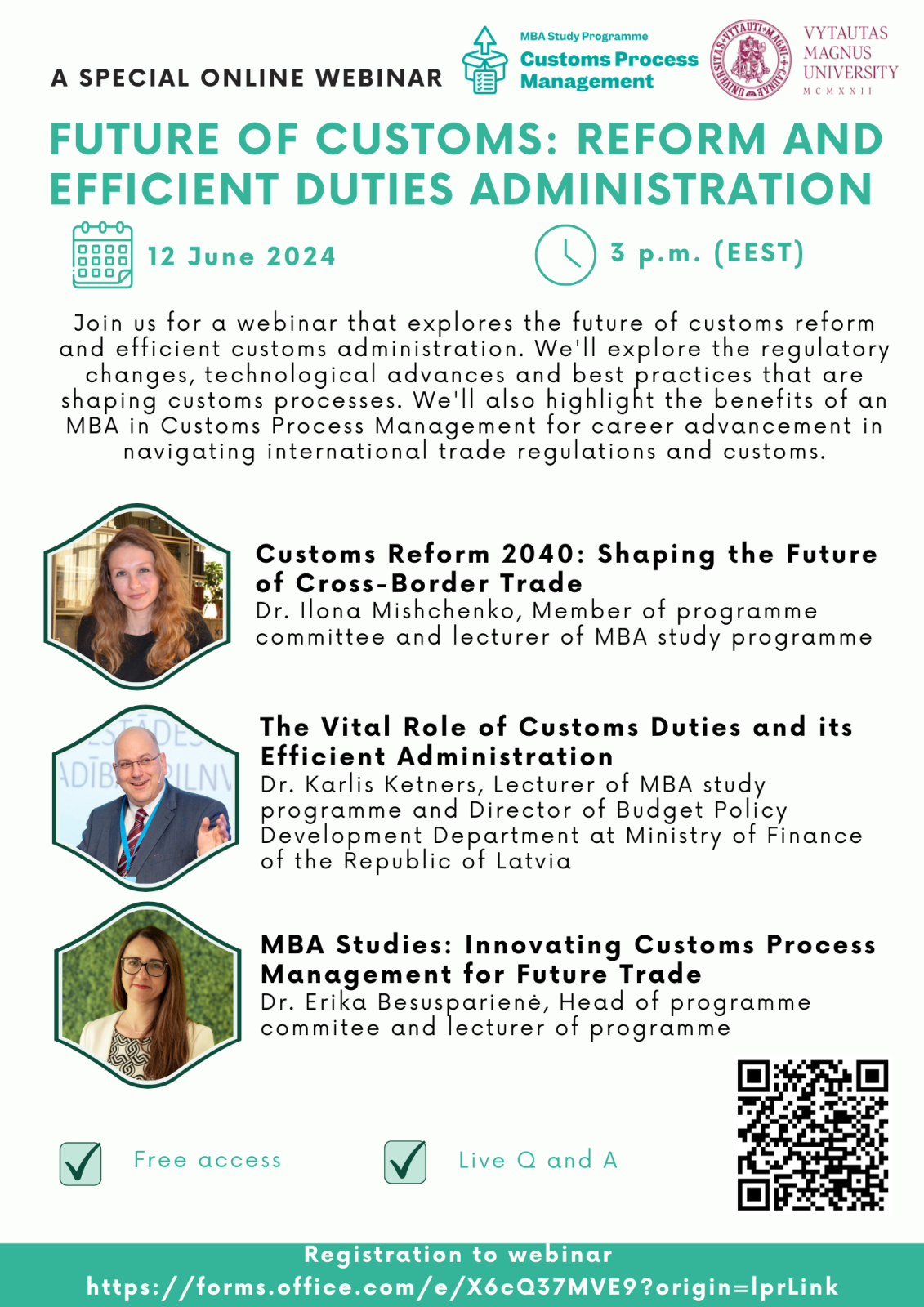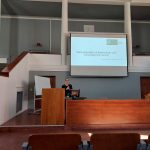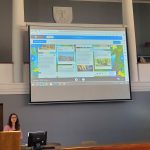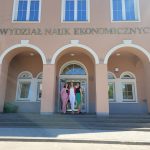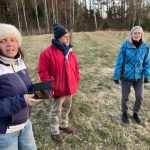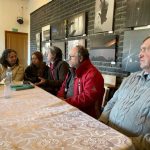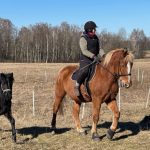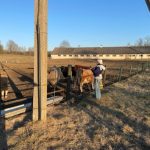VMU AA Autumn Intake 2024/2025 (extended application deadline). Apply now!
Would like to gain strong knowledge, solid skills, and invaluable international experience? Thinking about an unforgettable European student adventure and traveling the world?
Top-quality studies in a high-ranking university and living in Kaunas – located in the center of Europe – may be the perfect combination for You.
Your lifetime adventure can start now. With VMU Agriculture Academy.
Autumn Intake 2024/2025 study programmes:
- Accounting and Finance / Учет и Финансы (BA)
- Sustainable Bio-Business Management (BA)
- Logistics and Commerce (BA)
- Business Logistics (MA)
- Customs Process Management (MBA, online)
- Ecology and Climate Change (MA)
Application deadline July 1, 2024: For applicants from EU/EFTA countries and citizens of visa-free countries including Albania, Argentina, Australia, Brazil, Canada, Sakartvelo, Israel, Japan, Malaysia, Moldova, Mexico, New Zealand, Singapore, South Korea, United Kingdom, United States, Ukraine, Venezuela.
Information about Application and Admission Procedures
Information about Scholarships
Contact person: VMU Agriculture Academy International Coordinator Ekaterina Makrickiene ekaterina.makrickiene@vdu.lt +370 37 752 386
More information about VMU Agriculture Academy study programmes
Postdoctoral internships at VMU AA. Extended application deadline
The Lithuanian Research Council, promoting the development of the system of internships for young scientists after doctoral studies and raising the scientific qualifications of interns, announces a call for proposals for the projects of posdoctoral studies.
Vytautas Magnus University Agriculture Academy (VMU AA) invites applications for postdoctoral internships and do an internship at VMU AA in the fields of agriculture, life sciences, business and public management or engineering sciences. Applications for postdoctoral internships are submitted to the Research Council of Lithuanian. Applications for postdoctoral internships are submitted until June 16, 16.00 p.m. (Lithianian time).
The purpose of postdoctoral fellowships is to promote the development of the system of postdoctoral internships for young scientists and to raise the scientific qualifications of interns (these projects must not aim to create specific products for the market and increase the scale of commercial and technology transfer).
According to this activity, a postdoctoral trainee is understood as a researcher who has a PhD degree awarded by a Lithuanian or foreign research and study institution, and for whom no more than 5 years have passed from the date of the award of the PhD degree to the date of submission of applications specified in the invitation (this period does not include pregnancy and maternity leave, paternity leave or leave to take care of the child until the child turns 3 years old) and carrying out scientific research work provided for in the project. The intern must go to a foreign science and study institution or research center, laboratory, company, institution, library, archive, expedition, etc. for internship.
Contact at VMU Agriculture Academy:
Ingrida Ignotaitė
Tel. (8 37) 752 377
E-mail ingrida.ignotaite@vdu.lt
Universiteto str. 8A, Akademija, LT-53341, Kaunas distr.
We invite YOU to online webinar. Future of Customs: Reform and Efficient Duties Administration
Join us for a webinar that explores the future of customs reform and efficient customs administration. We’ll explore the regulatory changes, technological advances and best practices that are shaping customs processes.
This webinar will provide an exclusive insight into the benefits of an MBA in Customs Process Management. Listeners will gain valuable insights into how advanced study can enhance their career prospects and prepare them for the challenges of navigating international trade regulations.
Applications for foreign students to study the MBA Customs Process are open by 1 July 2024 via vytautasmagnus.dreamapply.com
Applications for Lithuanian students to study the MBA Customs Process for main competition are open until 26 June 2024 via https://epasirasymas.vdu.lt/
Webinar Topics:
- Customs Reform 2040: Shaping the Future of Cross-Border Trade
Dr. Ilona Mishchenko, Member of programme committee and lecturer of MBA study programme
- The Vital Role of Customs Duties and its Efficient Administration
Dr. Karlis Ketners, Lecturer of MBA study programme and Director of Budget Policy Development Department at Ministry of Finance of the Republic of Latvia
- MBA Studies: Innovating Customs Process Management for Future Trade
Dr. Erika Besusparienė, Head of programme commitee and lecturer of programme
Time:
12 June 2024 3 p.m. (EEST)
The planned duration of the webinar will be approximately one hour.
Registration:
https://forms.office.com/e/X6cQ37MVE9?origin=lprLink
The link to join the TEAMS platform before the webinar will be sent to the email address provided during registration.
Towards a circular economy society
Professor dr. Vilma Atkočiūnienė and dr. Ingrida Kazlauskienė, junior researcher and lecturer at the Department of Business and Rural Development Management, Faculty of Bioeconomy Development, Vytautas Magnus University, took part in the international meeting of the partners of the project “SKILLS – Strengthening Key Competencies in Agriculture for Value Chain Knowledge”. The aim of the final phase of the project is to develop teaching materials to complement various study programmes on the theoretical and practical aspects of the circular economy and circular agriculture, enabling students to acquire the green skills needed to implement circular economy principles.
The April meeting of the project partners took place in the mountain town of Miercurea Ciuc, Romania. At the meeting, the project partners discussed the phases of the project that have already been implemented and the results achieved, and set out the roadmap for the implementation of the activities and objectives of the fifth and final phase. The project partners exchanged views and experiences, discussed ways to involve students in circular economy and agriculture lectures, and innovative methods to impart the most important knowledge and skills. Two days of intensive work, sharing good practices, smiles and emotions passed quickly and fruitfully.
The project partners also had the opportunity to get acquainted with the activities of the HARGITA Hargita Közösségi Fejlesztési Társulás, http://www.visitharghita.comTourism Association, the research activities of the SAPIENTIA University, the activities of the laboratory for the fermentation of plant products, the activities of the specialists of the Rural Development Engineering in the protected areas of the Lake Saint-Anne and the Mohos Peat Bog, and the vegetation and fauna of the MOHA Peat Bog. The exposure to the activities of these organisations has broadened the researchers’ horizons and the circle of known good examples of circular economy, which will provide inspiration for new ideas and the development of educational material.
A visit to a family-run, high quality chocolate manufactory in a remote mountain village in Romania, which is becoming increasingly popular in the countryside, provided a particularly rich source of ideas on how to promote entrepreneurship in rural Lithuania. The growing network of rural gastronomic hotspots, thanks to Romania’s rural development strategy, provided opportunities not only to taste local products, but also to get to know the concept: a farmer cooks on his homestead, provides catering services, organises and runs educational programmes, under simplified tax and documentation conditions. In this way, he has the opportunity to process his crops, generate income, and introduce local and foreign tourists to Romania’s culinary heritage. This could be a new idea for the integration of agriculture and tourism in rural areas of Lithuania and their active inhabitants.
There was also a try at making a “Chimney Cake”, Hungarian and Romanian dishes, testing spring water… The knowledge and energy to continue the work were gained. The experience gained will not only be used for the implementation of the project, but also for the improvement of the Master’s degree programme in Rural Development Administration.
More information about the project can be found at: https://www.euskills.info/
You are also welcome to follow: https://www.facebook.com/people/Skills-Erasmus/100094589176839
Exploring the Bioeconomy Landscape: Insights from the Conference “Sustainable Bioeconomy Development 2024: Theory and Practice”
On May 8, the fourth online conference “Sustainable Bioeconomy Development 2024: Theory and Practice” took place at Vytautas Magnus University (VMU). It was the 4th conference, held biannually by the VMU Faculty of Bioeconomy Development. This time, it was organized in cooperation with the Bioeconomy Research Institute of Vytautas Magnus University Agriculture Academy. This year’s conference brought together experts in social sciences from a number of different countries: Lithuania, Latvia, the Czech Republic, Denmark, Romania, Poland, Ukraine, Slovakia, Kazakhstan, Norway, India, Greece, Israel, Finland, Estonia, and Belgium. In their welcome address to the participants of the conference, Prof. Dr. Astrida Miceikienė, Chancellor of Vytautas Magnus University Agriculture Academy, and Prof. Dr. Bernardas Vaznonis, Dean of the Faculty of Bioeconomy Development, highlighted the importance of research for Sustainable Bioeconomy Development.
Prof. Dr. Lene Lange from the LL-BioEconomy in Denmark, who is the expert in Bioeconomy, underscored the importance of knowledge and skill sharing to preserve recourses and boost transition to a circular economy. ” By conducting research in the field of bioeconomy, researchers can accelerate the transition from the linear to circular bioeconomy. So far, these processes are niche processes, with many experiments being conducted in practice, but they are rarely described and analyzed”. Prof. Dr. Lene Lange called for a more rapid implementation of alternative supply chains, forms of farming, and management systems, greater attention to social innovations, integration and amendment of political documents for them to turn into decisions at the regional, local, and organizational levels.
Prof. Dr. Agnieszka Jaszczak, University of Warmia and Mazury in Olsztyn (Poland), who also holds a position at Vytautas Magnus University Agriculture Academy, spoke about the R(evolution) of Sustainable Design and highlighted that today’s education is the key vector guiding us towards greening the economy.
Assoc. Prof. Dr. Sandija Zeverte-Rivza from Latvia University of Life Sciences and Technologies presented the results of research on transformative digitalisation in the bioeconomy: Unleashing Innovation and Sustainability. She focused on the integration of digital technologies in production, new business models, education, etc. She explained the risk related to energy demand, use and recycling of resources, and security aspects for sustainability.
Assoc. Prof. Dr. Patrik Rovný, a researcher from Slovak University of Agriculture in Nitra (Slovakia) delivered the plenary presentation on the Alternative Agricultural Systems and Their Impact on Consumers. The researcher shared insights into today’s issue of fruit, vegetables, and other foods having lower content of protein, minerals, and vitamins. He presented the research results on sustainable agriculture and customer opinions on alternative farming systems. Regrettably, the results show that only 33% of respondents disagree with the idea that the benefits of pesticide use in the EU outweigh its risks.
Wim Haentjens, representative of the Directorate-General for Research and Innovation – ‘Bioeconomy & Food Systems’ Unit, European Commission (Belgium), discussed the EU bioeconomy strategy as a key policy. He presented the timeline of the bioeconomy strategy in the EU and the support to change markers.
Plenary Session
Keynote Speaker Prof. Dr. Agnieszka Jaszczak
Keynote Speaker Prof. Dr. Lene Lange
Keynote Speaker Assoc. Prof. Dr. Patrik Rovný
Keynote Speaker Assoc. Prof. Dr. Sandija Zeverte-Rivza
Keynote Speaker Wim Haentjens
The Theory and Practice Synergy Session on “Territorial Circular Systemic Solutions for Sustainable Bioeconomy Development”, hosted by the Agro2Circular and funded by the European Union’s Horizon 2020 programme, brought together experts to discuss innovative approaches to residue upcycling into high-value products. This special session was organised by the VMU Agriculture Academy Bioeconomy Research Institute and moderated by Virginija Kargytė. Presentations from Spain, Italy, Finland and Lithuania explored the implementation and replication of solutions, alongside the discussions on circularity impact assessment and business model development. Led by organisations such as CETEC Research Centre, Tecnoalimenti, Lithuanian Confederation of Industrialists, VTT Technical Research Centre of Finland and GREEN – Bocconi University, the session aimed to foster collaboration and knowledge exchange to advance sustainable bioeconomy initiatives in Europe.
Discussions on the Theory and Practice Synergy Session
The conference featured around 30 oral presentations and 35 poster presentations by researchers from countries including Ukraine, the Czech Republic, Norway, Kazakhstan, Romania, Latvia, Poland, and Lithuania.
The first session of the most recent conference on “Bioeconomy Contribution to the European Green Deal” offered a rich tapestry of insights and discussions, shedding light on various facets of this critical issue. Led by moderators Assoc. Prof. Dr. Jurgita Baranauskienė and PhD student Kristina Gesevičienė, the session brought together experts and researchers to explore the challenges and opportunities in the field of bioeconomy. The first session drew attention to society’s growing concern for environmental safety and sustainability, highlighted by Assoc. Prof. Dr. A. Novikova from Lithuania. The need for increased awareness of environmental threats and ways to achieve a greener future was eloquently articulated by researcher Steliana Rodino from Romania. While showing promising progress in its bio-economy efforts, Romania still lags behind the EU’s average and has been encountering significant hurdles along the way. A key point underlined by Lect. Dr Joanna Storie from Estonia was the need to promote bioeconomy products without compromising biodiversity, emphasising principles such as avoidance, minimisation, restoration, and compensation.
Moments of the first session
Moving to the second session “Role of Innovative, Sustainable and Inclusive Bioeconomy in Development of Rural Areas”, moderated by Assoc. Prof. Dr. Anne Poder and lect. Dr. Algirdas Justinas Staugaitis, the focus shifted to the key role of an innovative, sustainable, and inclusive bioeconomy in rural development. Presentations revolved around the promotion of bioeconomy-centred entrepreneurship, strategic planning, and the infusion of innovation for circular transitions. Notable discussions included the integration of culinary tourism in rural landscapes and the facilitation of bioeconomy entrepreneurship through collaborative models such as hackathons involving industry stakeholders. The interactive nature of the session allowed presenters to explain their ideas, synthesise observations, and engage in robust discussions with participants.
After a break, the second session continued with contributions by moderators Assoc. Prof. Dr. Gintarė Vaznonienė and lect. Dr. Ingrida Kazlauskienė, which were characterised by a scientific perspective, focusing on empirical research results rather than theoretical reflections. This session provided a platform for the speakers to share their findings and raise scientific and practical questions. Moreover, the session served as a fertile ground for fostering international collaborations, as researchers found resonance with peers from different backgrounds, paving the way for potential joint ventures and collaborations in the future.
Moments of the second session
The third session, “Logistics and Marketing of Biological Resources and Bioproducts”, moderated by Assoc. Prof. Dr. Milita Vienažindienė and Dr. Elena Plotnikova, focused on the logistics and marketing intricacies surrounding biological resources and bioproducts. Drawing on the global pool of expertise, presentations by researchers from Romania, Lithuania, Slovakia and beyond addressed pertinent issues such as green marketing, sustainable logistics, and the need to bridge the gap between academic research and commercial application. The discussion on sustainable consumption patterns and the imperative of aligning academic knowledge with tangible market needs was particularly important.
Moments of the third session
The fourth session was dedicated to research on “Innovative Business Solutions in the Bioeconomy”. It was moderated by Dr. Lina Lauraitienė and PhD student Silva Katutytė. Researchers from five countries (Greece, India, Poland, Latvia, and Lithuania) shared their insights, focusing on innovations in the development of sustainable and environmentally friendly products. The session also covered the topic of the assessment of the challenges faced by companies and governments in implementing policies that lead to sustainable business and economy. Finally, the possibilities of using artificial intelligence and taxation methods to promote green innovation were discussed.
Moments of the fourth session
The conference essentially served as a platform for the exchange of ideas, fostering interdisciplinary dialogues, and exploring pathways towards a more sustainable, inclusive, and robust bioeconomy—a testament to the collective commitment towards realizing the goals outlined in the European Green Deal.
Teachers from the Faculty of Bioeconomy Development visited the University of Warmia and Mazury in Poland.
In May 2024, from the 13th to the 18th, Associate Professors Dr. Anastasija Novikova and Dr. Erika Besusparienė had a unique opportunity to visit the University of Warmia and Mazury, carrying out an Erasmus+ teaching visit. During this visit, the teachers had the chance to share their knowledge and experience with the university students and academic staff.
Assoc. Prof. Dr. Anastasija Novikova delivered lectures on the fundamentals and benefits of bioeconomy for society, focusing on environmental issues. She first overviewed the history of environmental action programs from their inception to the implementation of the European Green Deal, discussing the main objectives. She also explained the Bioeconomy Strategy to the students, revealing the importance of bioeconomy development, key concepts from different perspectives, and discussed the main principles of bioeconomy. Finally, students actively participated in an interactive knowledge assessment game about bioeconomy and environmental issues, which they successfully completed.
Assoc. Prof. Dr. Erika Besusparienė delivered lectures on Green Accounting. She emphasized the concept of Green Accounting and its integration into traditional financial and management accounting systems. Dr. E. Besusparienė highlighted the problem of environmental costs and investments often being hidden within general costs, stressing the need for companies to separate these environmental costs for more accurate reporting to stakeholders. During the lectures, Dr. E. Besusparienė engaged students in a discussion about internal and external environmental costs, using practical examples. Students, utilizing interactive tools, shared various examples of environmental costs and provided observations.
The lecturers also had an excellent opportunity to familiarize themselves with the university campus and visit a business exhibition organized for students to engage with businesses.
Furthermore, the teachers had discussions with the head of Department of Economic Policy and dean of the Faculty of Economic Sciences. The possibilities for collaboration in preparations of common proposals and publications between Lithuanian and Polish scientists were discussed. This visit provided an opportunity not only to share knowledge with the university community but also to promote international cooperation and partnership in this important field.
Representatives of the VMU MBA “Customs Process Management” Participated in the 10th Conference of the Customs Practitioners Association
On 23-24 May, the 10th anniversary conference of the Customs Practitioners Association was held in Vilnius, bringing together representatives from business, academia, customs and other institutions. This year’s conference focused on customs reform and its impact on customs systems, as well as digitalization.
The conference was attended by Dr. Erika Besusparienė, Chairperson of the study programme “Customs Process Management” committee at Vytautas Magnus University (VMU), and lecturer Kristina Gesevičienė. They were accompanied by students from the programme representing various companies. The conference was organised by the head of the Customs Practitioners Association, Enrika Naujokė, who is also a member of the study programme “Customs Process Management” committee.
Gertrūda Bakšienė, a student of the VMU MBA “Customs Process Management”, who is the coordinator of the Customs Brokers Group and an authorised representative of UPS in Lithuania UAB “Skubios siuntos”, shared her insights on business challenges related to the implementation of new customs systems. She emphasised that while digitalisation and technological change pose many challenges, they also offer new opportunities for more efficient and faster customs processes, especially when working in cooperation with customs.
The conference discussed key aspects of customs reform, including the impact of technological innovation on customs procedures, the readiness of businesses for these changes, and the role of intermediaries in the digitalization process. Participants had the opportunity to listen to presentations, participate in discussions, and exchange experiences and best practices. The event highlighted the continuous changes ahead and the lack of knowledge in this transformation of customs reform, emphasising the need to improve skills.
Organised for the 10th time, the conference of the Customs Practitioners Association is becoming an increasingly important event that addresses the most relevant issues in customs operations and business co-operation. This year’s event once again confirmed that successful customs process management requires constant dialogue between business, academia and institutional representatives. To ensure a smooth adaptation to new systems and changes, it is essential to invest in the improvement of professional skills, which is successfully offered by the VMU MBA “Customs Process Management”. We look forward to welcoming those who are interested and ready to join our growing community.
Visit under the “Erasmus+” programme for staff at Yerevan State University
SKILLS Multiplier Event
“SKILLS”, namely “Strengthening Key Competences in Agriculture for Value Chain Knowledge” (2021-1-EL01-KA220-HED-000023289), is an Erasmus+ Project regarding “Cooperation partnerships in higher education”, coordinated by the Department of Food Science and Nutrition of the University of the Aegean, Greece.
The SKILLS project pioneers Circular Agriculture in the EU, vital for sustainable farming. It modernizes agricultural education, promotes green skills, and aligns practices with EU regulations. Through research and stakeholder engagement, SKILLS enhances curricula, fosters partnerships, and drives sustainability.
Join us in shaping a greener future for agriculture through SKILLS.
Beneficiaries of SKILLS project are current and prospective students of agriculture sector, agricultural producers, local agricultural associations, consultants, local community leaders, policymakers and Ministry of Economics and Innovations, Ministry of Education representatives
You may be part of SKILLS Multiplier Event which is organized by the Project Consortium coordinated by the Department of Food Science and Nutrition of the University of the Aegean:
Thursday 23rd May 2024, 10:00 am UTC+2 (EET)
Presentations: University of the Aegean – Pantelidio, Myrina, Lemnos
Online Attendance via Zoom: https://aegean-gr.zoom.us/meeting/register/tJcqd–gpjssHNQCuiSQBWwCV-3iU_g5huZX.
Attendance certificates will be provided.
More information – SKILLS website: https://www.euskills.info/
Financed by the European Union. The European commision support for the production does not constitute an endorsment for the contents which reflects the views only of the authors and the commision cannot be held responsible for any use which may be made of the information contained therein.
Erasmus+ visit of French rural development practitioners
A visit by professional practitioners from France under the Erasmus+ programme, which supported a full week (06 03 2024 to 09 03 2024) of lectures at the Vytautas Magnus University Agriculture Academy, Faculty of Bioeconomy Development, Department of Business and Rural Development Management, field research and workshops in Valkininkai, Varėna district.
6 of March was dedicated to lectures. Jocya Bade, from the youth and adult vocational training institution MFR Richerenches, and Thierry Leroux, a resident of the village of Saint Marguerit Lafigere and vice-mayor of the local municipality, shared with the large gathering of undergraduate and postgraduate students of the Faculty of Bioeconomy Development, as well as with the researchers, their practical experience of developing a micro-area by means of experimenting with the participatory learning approach, an innovative way of transferring knowledge and competences. The detailed and visual presentation, open and interactive communication showed the participants the implementation and development side of the three-year rural change management and locality project, the development side, the impact on territorial development, and the possibilities of continuity.
On 7 of March, field research and workshops were held in and around Valkininkai small town.
Three groups of researchers carried out historical, socio-economic and natural heritage exploratory research on the town of Valkininkai and its surroundings, forming a team of creative researchers looking for territorial solutions.
Since early morning, the first group of the project researchers, led by Valdas Kavaliauskas, together with the guests from France Jocya Bade, an expert in environmental protection and biodiversity, and Thierry Leroux, the vice-mayor of the Sainte-Marguerite-Lafigère municipality, travelled around collecting data, trying to speak to the people of Valkininkai, to answer the question – “What are the Valkininkai forests, rivers and lakes telling us”.
The second group of researchers, consisting of MSc students in Rural Development Administration and participants of the Horizont program ENABLES project and local community leaders, carried out a field study on social infrastructure facilities and economic actors. The researchers were assisted by Danutė Blažiulionienė, the chairperson of the community organisation, and Jolanta Molienė, the manager of the cultural centre, to get to know Valkininkai. Collecting data, they visited the Valkininkai Cultural Centre, the library, the church, the community centre and the small town square.
During lunch, the two research groups discussed their findings and shared their impressions in the open air, at the White Mountain campsite in Užuperkasy. After lunch, the two research groups joined together for group work. They visited the social infrastructure and economy of Valkininkai, looking for signs of sustainability, social, economic and environmental links, elements of rural development, interacted with business representatives, listened to their experiences and challenges.
In the afternoon, the third research group “History of Valkininkai”, led by historian dr. Žygimantas Buržinskas, started.
In the evening, all three research groups and the local community met at the Valkininkai Cultural Centre for a workshop: to discuss the data collected, and to look for ways and means to strengthen the vitality of the area. Prof. Dr. Vilma Atkočiūnienė shared her experience on how she managed to “speak” Valkininkai, gave her insights on the observed spaces, social infrastructure objects, and offered suggestions on how to solve social, marketing and economic issues, as well as on how to meet the challenges of development of the area.
The historian dr. Žygimantas Buržinskas spoke about the historical significance of the region and looked for possible links with the present.
Jocya Bade, together with the research group “What Valkininkai forests, rivers, lakes are telling us”, presented their insights into the strengths and weaknesses in the fields of environment, biodiversity, and the opportunities and threats of the current situation. Jocya stressed the importance of integrating natural sciences into the education system and shared her experience from France.
During the discussion, dr. Audronė Ispiryan highlighted the common challenges in biodiversity and the ways to address them through ongoing projects. Using the Horizon ENABLES (Education and Nature Based Solutions) project as an example, she discussed with researchers and local community members the current challenges in Europe in these areas. All participants actively participated in the discussions, offered their insights and observations, and consulted foreign practitioners, professionals and scientists on the development of the Valkininkai region, tasting local traditional cuisine.
8 and 9 of March were devoted to the territorial analysis of Norvydiškės village and discussion of the results of the visit.
The steering group of the ” Pameistrių namai” place making project, together with its French partners, discussed the project’s prerequisites and possibilities, as well as the experience of building wood-burning stoves and managing the forest with horses. These experiences are relevant in the forested and mountainous area of Saint Marguerite Lafigere.
Valdas Kavaliauskas, a Master’s student in the Rural Development Administration programme, was one of the most active in initiating and organising the visit of the internship professionals to Lithuania. We would also like to share his reflections. “After our experiential visit to Saint Marguerit in November 2023 and the material presented by Jocy and Thierry during their visit on 6-9 March 2024, the relationship between people (permanent residents, migrants and tourists) and the territory, through a sense of ‘attachment’ and ownership of cultural and natural heritage, seemed to me is of particular importance for micro territorial development. And how does this lead to mobilisation or passivity, or complete indifference to the development of a place?” – Valdas Kavaliauskas said.
V. Kavaliauskas also noted that “there is a deep-seated desire on Thierry’s part to change this relationship and to re-establish (or create) a mutually mobilising relationship. He sees in this the meaningfulness of the participation of the students of the J. Bade School and of us, future professionals of Rural Development in Lithuania, to positively “destabilise” the negative atmosphere from the outside and to find a common point de passage to create a meaningful future. Very similar issues are present in the villages and small towns of our country, and during the workshop in Valkininkai (Varėnos district) this was very evident in the interactions with the local population. J. Bade, as a particularly talented and sensitive educator, shows us the development of the transfer of knowledge, understanding and practical application of competences and the development of personal-value education of young people. She gives meaning to this process”.
Through workshops, discussions with the local community and foreign practitioners, directions for further and more detailed research of the local area were identified. During the discussion of the visit, the following directions for further possible cooperation emerged: to build on the experience of French colleagues to develop the theme of practical transfer of skills and competences; to participate in the Erasmus programme. Erasmus mobility visits are foreseen: a visit of postgraduate students and researchers from the Faculty of Bioeconomy Development of the Academy of Agriculture, VMU in Saint Marguerite Lafiger (autumn 2025); a visit of the MFR youth group in Valkininki (2024); a visit of the MFR youth group in Valkininkai (2024). Autumn); cooperation in the study of micro-territorial development experience – Master’s thesis research in the areas of Valkininkai and Saint Marguerit Lafigere (Erasmus learning and postgraduate practice) (2024–2025–2026); development of a technological heritage exchange programme between the two areas (Erasmus internships, mobility projects 2025–2026).
- About
- About Agri-Food BM programme
- Academic infrastructure units
- All events
- All news
- Aquaculture center
- Archives
- Biosystems Engineering
- Center of Animal husbandry selections, breeding values and dissemination
- Centre of Biosystems Engineering, Biomass Energetics and Water Engineering
- Circular Biobased Economy
- Climate change
- Contacts
- Contacts
- Events
- Events archive
- Faculties
- For business and society
- Innovative products
- International Cooperation
- International projects
- Joint Research Centre of Agriculture and Forestry
- Journal “Human and Nature Safety”
- Laboratory of Technology Safety
- Laboratory services
- Living Environment
- More labs
- News
- Project
- QUALS project description
- Research
- Research areas
- Scientific events
- Scope
- Sitemap
- Studies
- Study programmes
- Technology Transfer & Commercialization
- THE ROLE OF ORGANISATION IN THE PROJECT
- THE ROLE OF ORGANISATION IN THE PROJECT
- THE ROLE OF ORGANISATION IN THE PROJECT
- The Study Process
- Žemės ūkio žinių ir inovacijų sistemos klasteris





